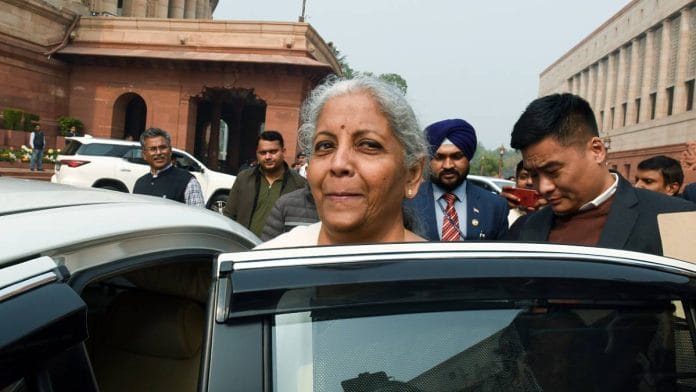New Delhi: Union Finance Minister Nirmala Sitharaman has announced the Gyan Bharatam Mission in the Union Budget for 2025-26, under which one crore manuscripts will be conserved and documented.
The mission aims to preserve and promote India’s rich intellectual heritage and the move aligns with the Modi government’s broader vision to integrate ancient wisdom with modern education and technology.
“A Gyan Bharatam Mission for survey, documentation and conservation of our manuscript heritage with academic institutions, museums, libraries and private collectors will be undertaken to cover 1 crore manuscripts,” Sitharaman, dressed in a white Madhubani saree, said Saturday at the new Parliament building in New Delhi while presenting her eight consecutive budget.
Union Minister for Culture and Tourism Gajendra Singh Shekhawat welcomed the announcement.
“Securing our Virasat, one manuscript at a time. The Gyan Bharatam Mission announced by our Finance Minister Nirmala Sitharaman today will enable Bharat to preserve and protect the invaluable wisdom and knowledge held by these manuscripts found across the country,” he posted on X.
Also Read: Assam State Archives shows how it’s done—5 lakh documents, 6000 maps, digitisation drive
Digital repository for Indian knowledge systems
Sitharaman also announced plans to set up a national digital repository of Indian knowledge systems (IKS) for knowledge sharing.
Ever since the Modi government came to power in 2014, it has been pushing to decolonise India’s education system. The effort was first consolidated in 2020 with the new National Education Policy (NEP) that envisions an education system rooted in the Indian ethos.
“Indian culture and philosophy have had a strong influence on the world. These rich legacies to world heritage must not only be nurtured and preserved for posterity but also researched, enhanced, and put to new uses through our education system,” reads the policy.
It recommends incorporating elements of India’s traditional knowledge in the curriculum in an “accurate and scientific manner” in areas including mathematics, astronomy, philosophy, yoga, architecture, medicine, agriculture, engineering, linguistics, literature, sports and games, as well as in governance, polity and conservation.
In October 2020, the Ministry of Education also launched an IKS division called Bhāratīya Jñāna Paramparā Vibhāga.
In addition, the National Archives of India (NAI), one of the largest repositories of ancient documents and manuscripts, is already on a mission to digitise all its records.
ThePrint had earlier reported how NAI is racing against time to digitise all its records.
“We have very old, rare records, it is India’s heritage which is kept with us. It is obvious that when there are so many interesting documents, people will want to see them,” Arun Singhal, Director General of NAI, had told ThePrint.
On multiple occasions, Prime Minister Narendra Modi has himself urged for reviving India’s ancient educational spirit.
“An education system based on Indian values is the need of the hour,” Modi had said in February last year, while addressing an event to mark the 200th birth anniversary of Arya Samaj founder Swami Dayanand Saraswati.
“The NEP aims at making India a hub of research and innovation. The policy has given equal importance to traditional knowledge systems and futuristic technology,” Modi had said in 2023, while addressing the Akhil Bhartiya Shiksha Samagam on the third anniversary of the launch of the NEP.
(Edited by Nida Fatima Siddiqui)






